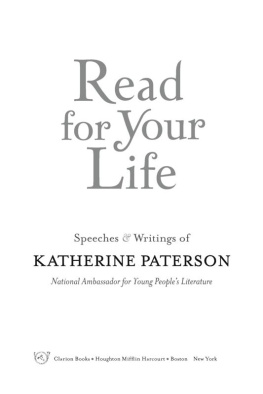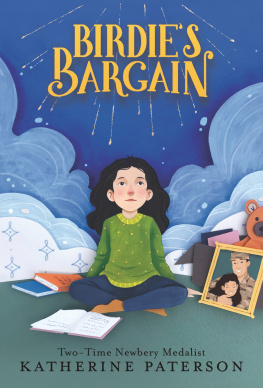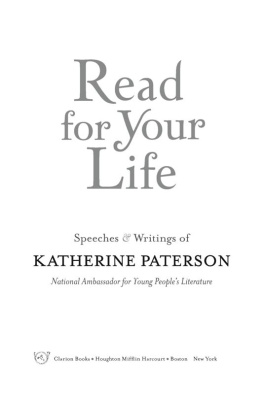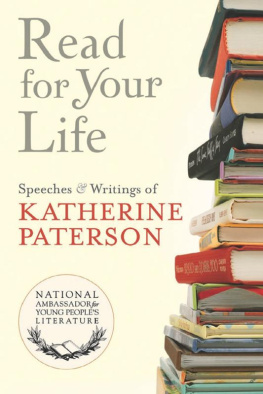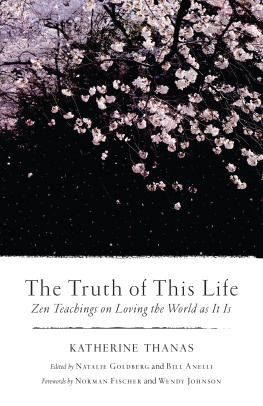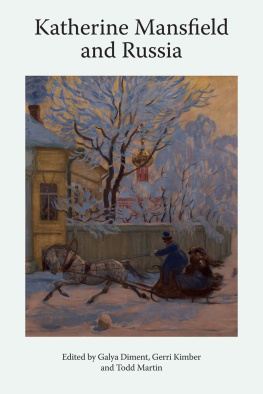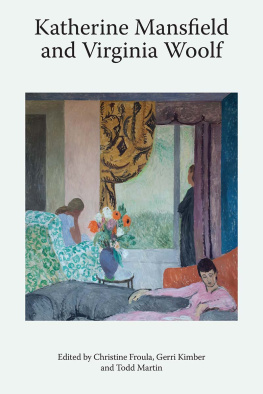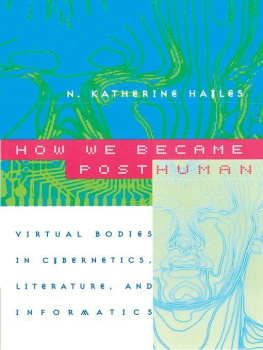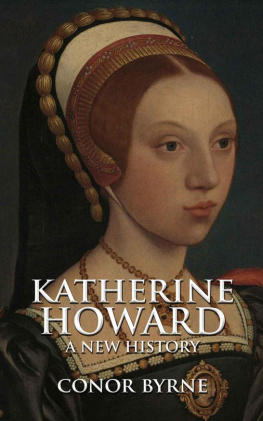Speeches & Writings of
KATHERINE PATERSON
National Ambassador for Young People's Literature
Clarion Books * Houghton Mifflin Harcourt * Boston New York
Contents
Unlikely Heroes
Unlikely Heroes
C OLUMBIA T EACHERS ' C OLLEGE
October 24, 2009
I've spoken a number of times through the years to what I think of as the wonderful Teachers' College audience. Of course, a lot has changed since the first time I came to Teachers' College. I can't remember exactly what year it was, but I do remember that our son John had recently graduated from Dartmouth and was working in the city. He dragged his best friend out of bed to come hear me speak. Brian was very impressednot with my speech, mind you, but with himself. He was so proud that he had actually gotten out of bed that early on a Saturday morning to hear his buddy's mother make a speech, and he claims I owe it to him to dedicate a book in his honor. Every time I have seen him over the last nearly twenty years, he reminds me of how early he got up and asks when he's getting the book he deserves. "Not going to happen, Brian," I say. "Sorry, not going to happen."
I know a lot of you got up very early this Saturday morning to come to this event, and I'm sorry I won't be dedicating a book to any of you, either, but as an apology, I've decided to dedicate this speech to you all. It's about heroes, and in my roll call of heroes, teachers hold a very high position.
I don't know how many of you were at Teachers' College that long-ago morning when John and Brian were here, but I know that a lot has happened to all of us since that day. Even since I was with you four years ago, a lot has happened. I can't resist telling you a story dating from the year after I was last here. It was March 2006, and I was awakened at six a.m. by a phone call from Sweden to tell me that I was the 2006 recipient of the Astrid Lindgren Award. From that morning until we actually left for Stockholm on the twenty-sixth of May, my five-year-old granddaughter could talk of nothing but the fact that she was going to meet a real princess. Her mother and I were a bit apprehensive. We knew that Crown Princess Victoria was slated to be at the award ceremonies, but we had no idea what the security measures would be, much less what the protocol was for meeting the future crowned head of Sweden. Jordan was busy practicing her curtsey, but when I asked Larry Lempert, the chair of the jury, how I should greet the princess, he said, "Oh, give her a high-five."
Needless to say, I sought other advice, and I was told simply to follow her lead. "She's very down to earth," everyone said. "She'll probably offer to shake hands." Which is exactly what she did.
The princess and I were comfortably seated in chairs in front of the huge outdoor audience a few minutes before the ceremony began. She was just as down to earth as all her subjects had promised me she would be, so I felt free to mention that my grandchildren were eager to meet her and to ask if that would be possible. "Of course," she said, "but why don't we wait for the photographers?"
I thought that was a great idea, but somehow, all of my seven grandchildren found that they had something to say to their grandmother that couldn't wait until after the ceremony. They made their way from their seats to the front row to speak to me, so, quite naturally, I had to introduce them to the princess, who shook hands with each one, asked their names, and greeted them all as cordially as if they were a diplomatic delegation from a friendly foreign country.
Of course, when the paparazzi lined up to take pictures afterward, my seven grandchildren were right there again to have themselves photographed with their old pal, Her Royal Highness.
Jordan, especially, was thrilled. When the photography session ended, she asked her mother, "Now are we famous?" Samantha assured her she was. She skipped over to me and happily took my hand to walk to the restaurant on the grounds, where the reception for all the famous people in attendance was being held.
When we went in, there on the table where guests were being checked in was the same picture of her grandmother that had been posted on the stage and in various sites around the city. We started up the stairs, and there at the top of the stairs was yet another picture of her grandmotherthis one nearly the size of her own front door. She took one look, sighed deeply, and began to shake her head. "Nana. Nana. Nana," she said.
"Are you tired of Nana, Jordan?" I asked.
"Yes."
Well, who could blame her? Grandmothers and children's writers do not generally have their pictures all over the place. They are very unlikely celebritiesand certainly the unlikeliest of heroes.
Which is why I remain in awe of the Swedish people. They have made a hero of Astrid Lindgren, a woman who came to prominence not because of royal blood or victory in battle or political powera person who was never a movie star or a rock musician, but a grandmotherwho was famous because she wrote books children love to read. Think of that! She is a national hero who was given a state funeral, statues in prominent places, and even her picture on postage stamps because she wrote books that children love to read.
Of course, Astrid Lindgren was more than simply a children's writer. She was also an eloquent spokesperson for justice and peace, but if she hadn't been the creator of Pippi Longstocking, who would have paid any attention to her? It was her writing for children that made the Swedish people listen to her powerful voice. A writer for children who became a national hero. Just imagine.
But I can't do a talk about heroes without revisiting the most unlikely hero of my childhood. I suspect a number of you already know this storya few of you could probably lip-synch itso I need a show of hands. Is there anyone here this morning who has not heard me tell the story of Eugene Hammett? I have resolved that as long as there is a single person in the audience who has not heard this story, I can tell it.
The story is set in what may have well been the most miserable year of my childhood, the year I was nine years old. That November we moved to Winston-Salem, North Carolina, and I was enrolled in the fourth grade at the Calvin H. Wiley Elementary School.
The fourth grade was a time of fear and humiliation for me. I recognize now that some of my best writing has its seeds in that awful year, but I can't remember once saying to my nine-year-old self, "Buck up, old girl. Someday you're going to make a mint out of all this misery."
There were, however, a few people that I remember with great fondness from that horrible year. One was the librarian at Calvin H. Wiley, and she made the library a sanctuary and a source of comfort and delight in an otherwise frightening place. The music teacher not only taught me how to do-re-mi but showed me that there were adults who could deeply empathize with a child's fears and pains. And there was Eugene Hammett, the other weird kid in the fourth grade.
There was a difference between me and Eugene. I was weird through no choice of my own. I spoke English, as my friends in Shanghai had, with something of a British accent. I could hardly afford lunch, much less clothes, so my classmates would, from time to time, recognize on my back one of their own donations to charity. On December 7, the Japanese attacked Pearl Harbor, and because it was known that I had come from that part of the world, there were dark hints that I might be one of them.
Eugene, on the other hand, was weird by choice. Or mostly by choice. I guess he didn't choose his looks. He was a perfectly round little boy who wore full-moon steel-rimmed glasses, long before John Lennon made them acceptable, and sported a half-inch blond brush cut. My only ambition in the fourth grade was to become somehow less weird. Eugene's declared ambition was to become a ballet dancer. In North Carolina, in 1941, little boys, even well-built or skinny little boys, did not want to be ballet dancers when they grew up.
Next page
